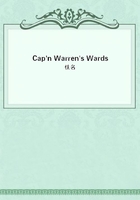
第41章
He was lonely, and the days seemed long. Reading the paper, walking in the park, occasionally dropping in at the lawyers'
offices, or visiting the shops and other places of interest about town made up the monotonous routine. He breakfasted early, waited upon by Edwards, got lunch at the restaurant nearest to wherever he happened to be at noon, and returned to the apartment for dinner.
His niece and nephew dined with him, but when he attempted conversation they answered in monosyllables or not at all. Every evening he wrote a letter to Abbie, and the mail each morning brought him one from her. The Dunns came frequently and seemed disposed to be friendly, but he kept out of their way as much as possible.
Pearson he had not seen since the latter's call. This was a disappointment, for he fancied the young fellow and believed he should like him even better on closer acquaintance. He would have returned the visit, but somehow or other the card with the boarding-house street and number had been lost or mislaid, and the long list of "James Pearsons" in the directory discouraged him. He speculated much concerning the mystery at which the would-be novelist hinted as preventing his accepting Caroline's invitation.
Evidently Pearson had once known Rodgers Warren well, and had been esteemed and respected by the latter. Caroline, too, had known him, and was frankly pleased to meet him again. Whatever the trouble might be, she, evidently, was ignorant of it. The captain wondered and pondered, but reached no satisfactory conclusion. It seemed the irony of fate that the one congenial person--Sylvester excepted--whom he had met during his stay in the big city should be scratched from his small list of acquaintances.
With Sylvester he held many familiar and enjoyable chats. The good-natured, democratic senior member of the law firm liked to have Captain Elisha drop in for advice or to spin yarns. Graves, who was well again, regarded the new guardian with respect of a kind, but with distinct disapproval. The captain was, in his opinion, altogether too flippant and jolly. There was nothing humorous in the situation, as Graves saw it, and to laugh when one's brother's estate is in a tangle, indicated unfitness, if nothing worse. Kuhn was a sharp, quick-moving man, who had no time for frivolity if it delayed business.
It was after a long interview with Sylvester that Captain Elisha decided to send Stephen back to college. When he broke the news there was rebellion, brief but lively. Stephen had no desire to continue his studies; he wished to become a stock broker at once, and, as soon as he was of age, take his father's seat on the Exchange.
"Stevie," said Captain Elisha, "one of these days, when you get to be as old as I am or before, you'll realize that an education is worth somethin'.""Ugh!" grunted the boy, in supreme disgust. "What do you know about that?""Why, not much, maybe, but enough."
"Yes?" sarcastically. "What college did you attend?""Me? Why, none, more's the pity. What learnin' there was in our family your dad had. Maybe that's why he was what he was, so fur as money and position and society and so on went, and I'm what _I_am."
"Oh, rubbish! What difference does it make to Malcolm Dunn--now--his going through college?"
"Well, he went, didn't he?"
Stephen grinned. Malcolm had told him some particulars concerning his university career and its termination.
"He went--part way," he answered.
"Ya-as. Well, you've gone part way, so fur. And now you'll go the rest.""I'd like to know why."
"For one reason, because I'm your guardian and I say so."Stephen was furiously angry. His father's indulgence and his sister's tolerance had, in most cases, made his will law in the household. To be ordered about in this way by an ignorant interloper, as he considered his uncle, was too much.
"By gad," he shouted, "we'll see!"
"No, we've seen. You run along now and pack your trunk. And take my advice and study hard. You'll be behindhand in your work, so Mr. Sylvester tells me, but you're smart, and you can catch up.
Make us proud of you; that's what you can do."His nephew glanced at him. Captain Elisha was smiling kindly, but there was no sign of change of purpose in his look.
Stephen ground his teeth.
"Oh," he snarled, "if it wasn't for the disgrace! If things weren't as they are, I'd--""S-s-s-h! I know; but they are. Maybe I wish they wa'n't 'most as much as you do, but they are. I don't blame you for feelin' mad now; but I'm right and I know it. And some day you'll know it, and thank me.""When I do, I'll be insane."
"No, you'll be older, that's all. Now pack your trunk--or get the Commodore to pack it for you."News from the Moriarty sick room continued favorable for a time.
Then, with alarming suddenness, a change came. The broken hip was mending slowly, but poor Pat's age was against him, and the shock and long illness were too much for his system to fight. Dr. Henry shook his head dubiously when the captain asked questions. And, one morning at breakfast, Edwards informed him that the old man was dead. Annie had been summoned by telephone at midnight and had gone home.
Captain Elisha, though not greatly surprised, was shocked and grieved. It seemed such a needless tragedy, almost like murder, although there was no malice in it. And the thought of the fatherless children and the poverty of the stricken family made him shudder. Death at any time, amid any surroundings, is terrible;when the dead hands have earned the bread for many mouths it is appalling.